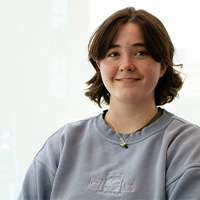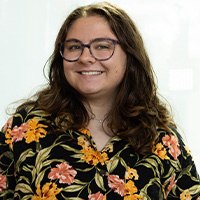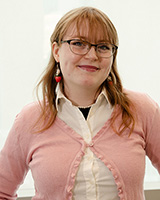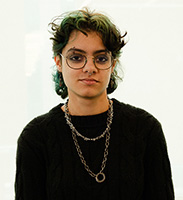SUNY ESF
Writing Resource Center
The Writing Resource Center (WRC) is a community of practice where students can come together to develop their writing skills and work on the shared craft of writing. Writing is a craft that can be refined through practice, and the WRC provides a structure and space were people can come together to practice their writing as a social endeavor. The WRC can be your writing community where you can reflect on ideas, identify your audience, refine your argument, and revise your writing until you are satisfied. The tutors in the writing center look forward to supporting your work at ESF!
WRC tutors work with students in individualized 30- or 60-minute interactive sessions focused on brainstorming, organization, drafting, and/or revising among other writing related tasks. Our mission is to help writers succeed in a strong ESF writing community.
Follow us @esfwrc for information on workshops, videos, writing conferences, tips and events!
Appointments
The WRC primarily serves currently enrolled ESF undergraduates. Requests from other ESF populations (including grads and PhD students) will be accepted on a limited basis. Additional ESF populations should contact the WRC coordinator first before making an appointment at [email protected].
In order to secure an appointment, please go to https://esf.mywconline.com/ and create an account. Select a time and schedule an appointment. Check your email for a confirmation note from the scheduling system.
Our hours of operation are also posted outside the Writing Center. If a tutor is available, you may drop in for a session. Descriptions of tutor's writing experience can be found at the bottom of this page.
Students can access online tutoring sessions by logging into the schedule about 5 minutes before their session, opening their appointment block, and clicking "Start or Join Online Consultation" (text in red in the center of the window). Importantly, students do not need audio or visual capabilities on their computer (though those options are available); the session can take place through text in a shared chat bar if those options are not available.
What You Can Expect in a Tutoring Session
Writing tutors are experienced and accomplished writers who can help you develop writing skills. Here are a few examples of writing session goals and what tutors can do to encourage the development of your writing skills.
- Learn how to examine a variety of purposes, audiences, formats and structures of writing tasks.
- Help you understand class assignment expectations.
- Encourage you to brainstorm and think through different approaches to writing.
- Identify and correct problems in all stages of your writing process.
- Assist with organization and format.
Teach grammar and proofreading strategies as related to specific texts and assignments.
Please note that tutors are not in a position to formally edit your papers and you should always take time to discuss your assignments with professors and TAs.
Apply to be a Tutor
Are you interested in becoming a tutor? To apply, please download the document below and submit to the Coordinator. Tutors work 4-6 hours per week in the writing, attend a 1-hour class per week (EWP401), and participate in multiple professional training opportunities across campus. For more information about to the tutor internship program, stop by the WRC and speak with the Coordinator.
Faculty Requests for WRC Services
We welcome students working on specific class assignments and group projects. In order to accommodate faculty requests, please contact the Coordinator to share assignments, suggest training for tutors, and schedule classroom visits.
Staff
We have trained graduate and undergraduate tutors who provide support to students in all stages of the writing process. We support a variety of writing practices, including lab reports, essays, memos, reflections, reports, job applications, cover letters, and resumes.

Nabeel Chollampat
Writing Center Coordinator & Lecturer
Tutor

Grace Gilcrist
Academic Year: 2027
Major: Conservation Biology, EWR Minor
Area of Expertise: Structure and formatting, syntax, critical reading, scientific and creative writing,
grammar, and organization

Amaya Denson
Academic Year:2026
Major:Environmental Studies
Area of Expertise: Academic/Research writing, grammar, and organization

Max Loccisano
Academic Year: 2026
Major: Environmental Health
Area of Expertise: Academic writing, lab reports, organization, planning papers

Lauren Berroa
Academic Year: 2027
Major: Environmental Studies
Area of Expertise: Research writing, brainstorming and planning, grammar and structure

Will Morris
Academic Year: 2027
Major: Environmental Education and Interpretation
Areas of Expertise: Creative and Academic writing, organization, brainstorming, and structure and syntax

Kylie Boyd-Parry
Academic Year: 2028
Major: Environmental Biology
Areas of Expertise: Research papers, lab reports, creative academic writing, literary analysis and presentations

Sof Harrison
Academic Year: 2026
Major: Environmental Science
Area of Expertise: Creative writing, technical scientific writing, formatting, grammar and structure,
brainstorming buddy

Eden Torales
Academic Year: 2027
Major: Environmental Studies
Area of Expertise: Research and academic writing, lab reports, syntax, literary analysis, organizing
and planning

Aubrie Methven
Academic Year: 2026
Major: Environmental Studies
Area of Expertise: Research writing, presentations, syntax, professional communication writing, organization.

Margaret Ryan
Academic Year: 2026
Major: Environmental Studies, EWR Minor

Rowan Stout
Academic Year: 2027
Major: Conservation Biology

Rowan Vazquez
Academic Year: 2029
Major: Aquatic and Fisheries Science

Maty Gueye
Academic Year: 2028
Major: Environmental Studies
